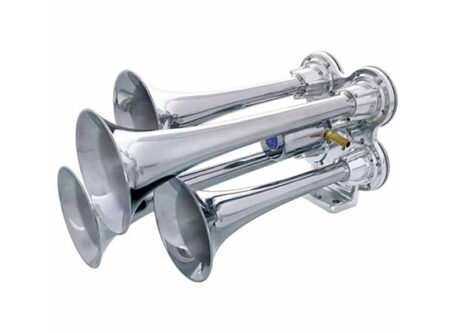OOIDA lends support in case against AB5
The Owner-Operator Independent Drivers Association is lending support to a case involving Uber and Postmates that alleges California’s Assembly Bill 5 violates the Equal Protection Clause of the U.S. Constitution.
OOIDA filed an amicus brief with the U.S. Court of Appeals for the Ninth Circuit on Monday, Jan. 22. The filing in Olson v. California comes before the Ninth Circuit’s full 11-judge panel is expected to hear oral arguments in March regarding the controversial state worker classification law.
“AB5 is riddled with exemptions and carve-outs that … directly contradict and undermine AB5’s claimed purposes,” OOIDA wrote in its amicus brief. “Applying this court’s equal protection framework to either of these fact patterns results in a straightforward conclusion: The differential treatment fails rational basis review.”
Olson case and AB5
In 2019, California signed AB5 into law with the stated goal of preventing businesses from classifying workers who should be deemed employees as independent contractors. AB5 is based on the ABC Test, which says that a worker is considered an employee unless three factors are established.
AB5 was originally purported as a general labor law that would cover a variety of industries, including trucking, app-based delivery companies and journalism. However, exemptions were later granted to workers in multiple fields. Opponents contend that the law now targets gig workers and the trucking industry.
In Olson v. California, Lydia Olson and Miguel Perez – drivers for Uber and Postmates – argued that AB5 violates the Equal Protection Clause.
A lower court sided with the state. Last March, however, a three-judge panel for the Ninth Circuit partially reversed the previous ruling. In its decision, the panel cited comments from then Assemblywoman Lorena Gonzalez to suggest that the AB5 was specifically targeting app-based companies such as Uber and Postmates.
In December, the court granted an en banc rehearing, which means that all 11 judges will review the case.
OOIDA’s amicus brief told the court that AB5 violates equal protection in the Olson case, as well as how the law applies to interstate truck drivers.
“(In the Olson case), the app-based worker provision exempts many workers who are indistinguishable from the primary targets of AB5, which simultaneously shows that the exemption undermines AB5’s purpose and was motivated by political animus for apps like Uber and Postmates,” OOIDA wrote. “Likewise, in OOIDA’s challenge, OOIDA demonstrated that AB5’s business-to-business exemption can only ever apply to local workers despite the law’s claimed purpose of reclassifying California workers and that lawmakers wished to eliminate independent contractor drivers even if they were properly and voluntarily independent.”
AB5 in trucking
Although the gig companies’ lawsuit is distinct from the one filed by the California Trucking Association and OOIDA, there are potential overlaps in some of the constitutional arguments. In addition, the Uber and Postmates case could affect the timing of a lower court’s ruling.
The U.S. District Court of the Southern District of California heard oral arguments in the California Trucking Association and OOIDA’s case against AB5 on Nov. 13.
The two trucking groups argue that the law eliminates the independent contractor driver business model in the trucking industry and that it violates the U.S. and California constitutions.
OOIDA, which is serving as an intervenor in a case against the state’s worker classification law, told the court in its Oct. 27 reply brief that AB5 needlessly causes genuine independent contractors to be reclassified as employees.
“AB5 discriminates against and imposes undue burdens on interstate commerce in violation of the dormant Commerce Clause, and the disparate treatment of AB5’s business-to-business and construction exemptions violates the U.S. and California constitutions’ equal protection clauses,” OOIDA wrote. LL









